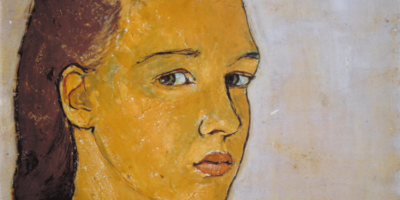Dora Wasserman: Grand Dame of Yiddish Theatre
Dora Wasserman, the grande dame of Montreal’s Yiddish Theatre, has at last received recognition for her work as a theatre producer. She was recently named, at 75, to the Order of Canada—the country’s highest civilian honor.
Wasserman works out of the Saidye Bronfman Centre in Montreal. Her all-volunteer troupe, now in its 34th season, puts on two shows a year, each averaging (in a 306-seat hall) an impressive 80 percent capacity crowd.
During the last four decades, Wasserman has produced nearly 60 shows, including It’s Hard To Be A Jew (by Sholom Aleichem), Kiddush Hashem (by Sholem Asch), The Unseen (by I. B. Singer), Green Fields (by Peretz Hirschbein), Hotsmakh (by Itsik Manger) and The Duke (by Alter Kaczyne). Among her most popular productions were A Bintel Brief (“A Bundle of Letters”), based on immigrants’ letters to the advice columnist of the Jewish Daily Forward, and Papineau, derived from a diary kept by the beadle of a synagogue in the Papineau district of Montreal from 1904 to 1956.
Wasserman recently produced a spirited performance of Montreal playwright Michel Tremblay’s classic Les Belles Soeurs (“The Sister-in-Laws”) translated into Yiddish by Goldie Morgentaler and historian Pierre Anctil. Set in a Montreal working-class district. the play pungently portrays 15 women gathered together to paste into books the trading stamps their neighbor has won. Their gossiping, laughter and bickering, whether in the French original or in Yiddish translation, delights audiences with its authenticity.
Born in Ukraine in 1920 and graduated from the Yiddish Art Theatre in Moscow and the Kiev State Theatre, Wasserman arrived in Canada in 1950 as a penniless immigrant, formed the Yiddish Drama Group, and in 1973 moved her amateur troupe into a permanent home at the Saidye Bronfman Centre.
She views her theatrical work in Montreal as the continuation of the six years she spent at the Kiev State Theatre in the 1940’s training under Solomon Mikhoels, formerly the director of the Yiddish Art Theatre in Moscow. In February 1948, as Stalin was cracking down on “rootless cosmopolitans,” Mikhoels was killed. Soon afterward, the Jewish theater in Moscow was forced to close, as were Yiddish-language playhouses in Kiev, Minsk, Kharkov, Odessa and even Birobidzhan.
With her Yiddish stage colleagues “disappearing” in Stalin’s purges, Wasserman decided to flee the U.S.S.R. She made her way to Poland, and from there she spent time at a displaced persons camp in Vienna. At the age of 30, not knowing a word of either French or English, she found herself in Montreal with her husband, Sam (now a retired furrier) and two young daughters.
It didn’t take long before Wasserman found her way back to the theater. “I went to the Jewish Public Library and said I would like to do something with children. In 1952 there were a lot of Yiddish speaking children,” she recalls.
Soon she was giving hundreds of performances as a singer, pianist and guitarist. Many of those first children she taught later joined her Yiddish Theatre, which staged its first production. The Innkeeper, in 1957.
At first Wasserman’s company mounted only one production a year, but as her troupe became more professional she began to take on more work. A high point came in the 1970s with shows like The Rothchilds which featured a cast of 60. She has accomplished her theatrical wizardry with a minuscule budget, annually wiping out her deficits with a fund-raising dinner. “We don’t get any government grants,” she stresses. “The Canada Council gives only to professional theaters.”
Despite the relatively large numbers of mamaloshen speakers in Montreal, Wasserman acknowledges that demographics are not in her favor. Even some of the actors in her troupe have little or no knowledge of the language, and memorize their lines phonetically.
“We have to start depending on young, English-speaking people,” she says. And for that reason—to instill a love of Yiddish and theater—she travels to Jewish schools putting on extracurricular programs that attract some 3,000 students a year.
Wasserman hopes that her daughter, Bryna, who directs theater in New York, will one day take over the troupe she founded. And what of the future of Yiddish itself? “I think there is a movement coming back,” says Wasserman optimistically. “If people want it, it will certainly come back. It just can’t pass away.”


